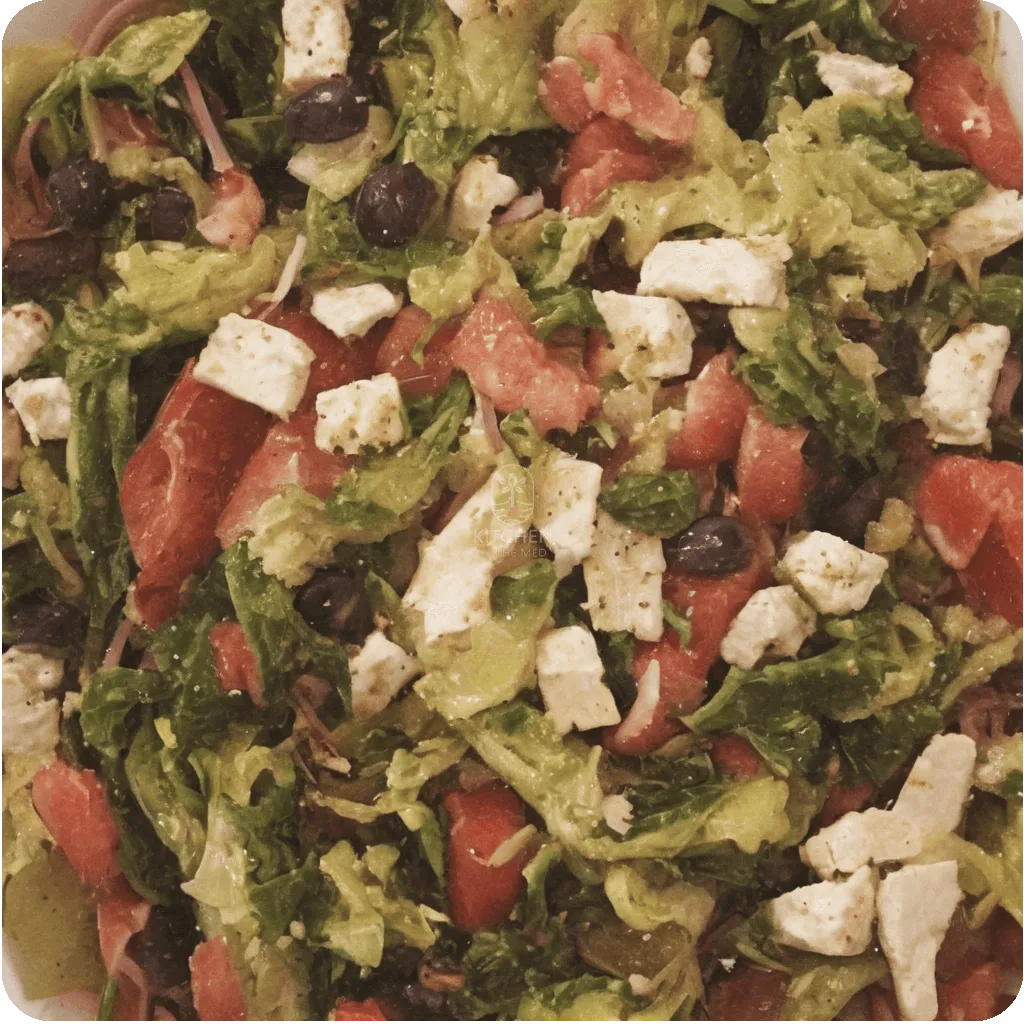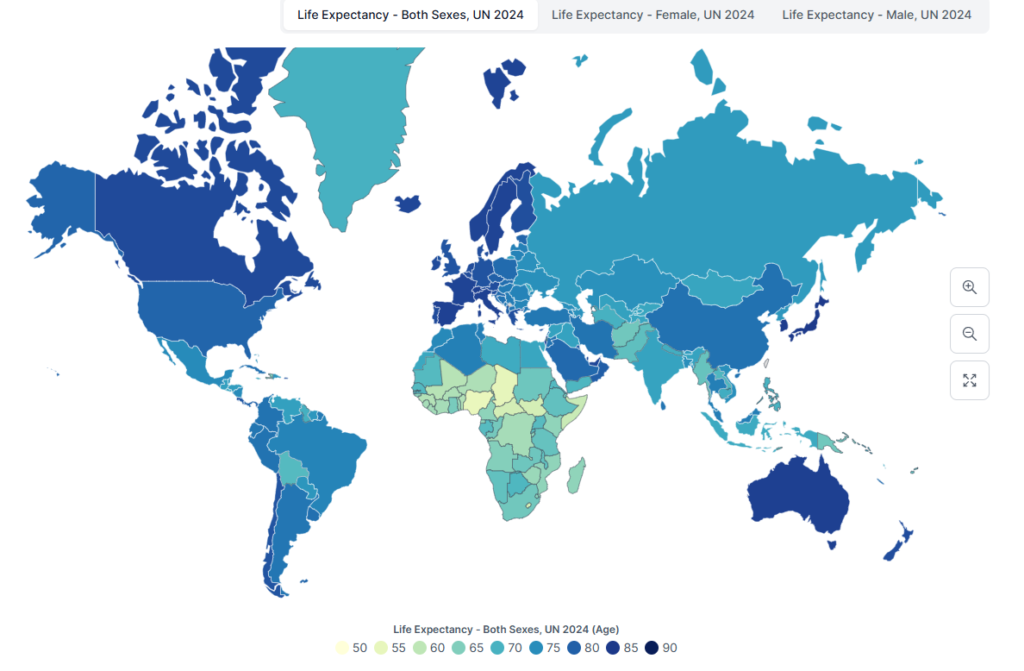Unlocking the Secrets of Longevity: Why the Mediterranean Diet is More Relevant Than Ever in 2025
Building on my earlier exploration of the Mediterranean diet’s persistent popularity in 2025, today I expand on that article, emphasizing current research, additional practical examples, and actionable ways you can adopt this diet successfully.

Burratta Salad by Kitchen in the Med
Share this article
A Lifestyle for the Long Haul
Countries such as Italy, Spain, and Greece continue to rank high globally for life expectancy, as noted by CEOWorld’s 2025 report. These nations exemplify how cultural practices surrounding food significantly impact overall health. Recent U.S. News & World Report rankings confirm the diet’s superior standing for the eighth consecutive year, showcasing its comprehensive health benefits.

Mediterranean Bowl by Kitchen in the Med
Why is the Mediterranean Diet So Effective?
The Mediterranean diet isn’t just about food; it emphasizes fresh, whole foods, mindful eating, and social connections. A significant 2024 study published in the European Journal of Clinical Nutrition reinforced its role in preventing chronic illnesses like cardiovascular diseases, certain cancers, and cognitive decline. Additional research from the Journal of Internal Medicine affirms the link between diet and lower mortality rates.
Some examples of these benefits in action:
- Residents of Sardinia, Italy, regularly consume dishes featuring beans, barley, and fresh vegetables, helping them maintain remarkably low rates of heart disease.
- People in Spain regularly eat meals rich in olive oil and nuts, significantly reducing the risk of stroke and heart attacks.
Spotlight on Cognitive Health: Lessons from Ikaria
The Greek island of Ikaria, known for its extraordinary longevity and notably low dementia rates, offers robust evidence of the Mediterranean diet’s cognitive benefits. A recent feature by the New York Post (Feb 2025) attributes this phenomenon to Ikaria’s habitual consumption of antioxidant-rich herbal teas and moderate coffee intake.
Moreover, research published in Nature (Jan 2024) highlights the diet’s anti-inflammatory and neuroprotective qualities, suggesting significant potential for reducing Alzheimer’s risk. A recent EatingWell study also reported striking results, noting that adherence to Mediterranean dietary practices might significantly slow age-related brain atrophy.
Heart and Cancer Protection: Updated Insights

Greek Salad by Kitchen in the Med
Heart disease remains a top global health challenge. Mayo Clinic findings in 2025 confirm that the Mediterranean diet effectively lowers cardiovascular risks by reducing hypertension and harmful cholesterol levels.
Recent research in JAMA Network Open (Feb 2025) provides additional compelling evidence, showing a 6% reduced risk of obesity-related cancers. This protective effect comes primarily from the diet’s anti-inflammatory ingredients, such as olive oil, fruits, vegetables, and nuts.
Examples of beneficial Mediterranean ingredients include:
- Olive Oil: Rich in monounsaturated fats, olive oil significantly reduces inflammation and protects against heart disease.
- Tomatoes contain lycopene, an antioxidant linked to lower cancer risks, especially prostate cancer.
New Developments in 2025
The American Heart Association recently underscored the Mediterranean diet’s brain-protective effects, explicitly noting its effectiveness within diverse populations, including Hispanic and Latino communities. CBS News (Jan 2025) emphasized that the diet’s success is partly due to its holistic approach, encompassing emotional and social health.

Extra Virgin Olive Oil by Kitchen in the Med
Parallels with the Japanese Diet
Interestingly, Japan consistently ranks alongside Mediterranean countries regarding health and longevity. Both dietary patterns emphasize fresh produce, lean proteins (mainly fish), minimally processed foods, and a strong cultural component of mindful, social eating. These parallels underscore a universal approach to nutrition, promoting wellness and longevity.
Making the Mediterranean Diet Work for You: Practical Examples
Adopting this lifestyle can be effortless with clear guidelines and everyday examples:
- Breakfast: Greek yogurt with fresh figs, walnuts, and a drizzle of honey or oatmeal topped with fresh berries and almonds.
- Lunch: A Mediterranean vegetable wrap filled with hummus, grilled vegetables, feta cheese, or a quinoa salad mixed with chickpeas, tomatoes, cucumber, olives, and olive oil.
- Dinner: Try grilled fish seasoned with lemon and herbs, served alongside roasted potatoes, sautéed spinach, or whole-grain couscous paired with roasted vegetables.
- Snacks: Opt for fresh fruit, sliced vegetables with hummus, or a handful of mixed nuts and dried fruits.
Additional practical tips:
- Use herbs like basil, oregano, or rosemary to enhance flavor without additional salt.
- Substitute butter with olive oil for cooking and baking.
- Include legumes regularly, such as chickpeas in salads or lentils in soups, for added fiber and protein.
Why Now is the Best Time to Start
The continued recognition and new research of 2025 affirm the Mediterranean diet as more than a passing trend; it is a proven path to improved health and longevity. With straightforward adaptations to everyday life, this diet remains accessible and beneficial for everyone.
Final Considerations

Croquettes Drawing by Kitchen in the Med
If your current diet is very different from the Mediterranean diet, adopt some good practices first and slowly make them a habit.
It is much more effective to adopt good eating habits than to follow a diet for some time for quick results and then lapse back to processed foods and door-dash.
Before undertaking significant dietary changes, consult healthcare professionals to tailor the Mediterranean diet to your health goals and needs.

Assorted nuts in a bowl by Kitchen in the Med
Main Sources I used in This Article
CEOWorld (Jan 2025)
U.S. News & World Report (Jan 2025)
European Journal of Clinical Nutrition (2024)
International Journal of Molecular Sciences
Nature (Jan 2024)
Journal of Pathology, Microbiology and Immunology (October 2024)
JAMA Network (May 31st 2024)
New York Post (February 2025)
American Heart Association (Feb 2025)
cbsnews.com (january 2025)

Share this article
Welcome to Kitchen in the Med!
I’m Alberto, born and raised in Barcelona, Spain, a principal city in the Mediterranean.
Here, I share authentic, easy-to-follow recipes inspired by the rich flavors of my home. You’ll find wholesome, time-honored dishes, expert cooking tips, and ingredient guides to help you bring the Mediterranean diet and other dishes to your kitchen—regardless of where you live.
You can also follow my quest to find a small plot of land to live and grow a garden in the Med.


